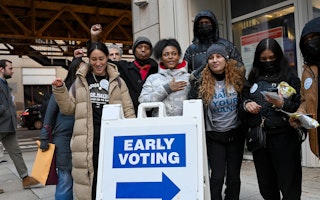An Alabama Perspective Post Arizona v. U.S.
By Zayne Smith
Alabama lawmakers do not understand the legal implications of the Supreme Court’s ruling on Arizona’s anti-immigrant law. Many falsely claim that the ruling means Alabama’s anti-immigrant law HB56 is legal. Nothing could be further from the truth. In a 5-3 decision, the Supreme Court struck down three out of four provisions of the Arizona’s SB1070.
Two significant legal observations were made very clear by Justice Kennedy (a conservative, Reagan appointee) in the majority opinion. The U.S. Constitution grants exclusive authority over immigration matters with the federal government and the Supremacy Clause gives federal law (and Congress) the power to preempt state law.
It is important to highlight the fact that while the Court did not strike down the “papers please” provision in the Arizona anti-immigrant law, it did not uphold it either. Rather, than endorsing the expansive interpretation that Arizona suggested, the Court inserted an instructional caveat, warning that the statute must be narrowly applied to avoid constitutional challenges. And, in a rare move, it expressly left the door open for future preemption and constitutional challenges. This underscores the position maintained by Alabama Appleseed, and other plaintiffs in HICA v. Bentley, that prolonged detention during stops, solely for the purpose of determining status, as mandated under Section 12 of HB56, has blatant civil rights implications. What does this mean? The Supreme Court has created an atmosphere that is ripe for years of legal and political quarreling in Alabama over racial profiling and civil rights. It is inevitable that the Supreme Court will be asked to once again review this controversial provision.
Unlike Arizona, Georgia, South Carolina, Utah, and Indiana, Alabama is the only state where the “papers please” provision of an anti-immigrant law has gone into effect. The Supreme Court decision emphasizes the position maintained by Alabama Appleseed, and other plaintiffs in HICA v. Bentley, that prolonged detention during stops, solely for the purpose of determining status, as mandated under the “papers please” section of HB56, has blatant racial profiling and civil rights implications.
It may come as no surprise, however, that Alabama lawmakers and public officials, including Alabama Governor Robert Bentley and House Speaker Mike Hubbard, claimed that the Supreme Court decision was a victory for Alabama and the validity of HB56.
Alabama lawmakers are out of touch with reality and do not understand the legal implications of a Supreme Court decision. The fight for immigrant justice is far from over in Alabama. For those organizations and individuals who continue to fight for justice in Alabama, we hold true to our campaign slogan that states “One Family, One Alabama” and “Quien es Alabama?” “Somos Alabama!”
Zayne Smith is Immigration Policy Fellow at the Alabama Appleseed Center for Law & Justice, Inc. and coordinator for the Alabama Coalition for Immigrant Justice.


